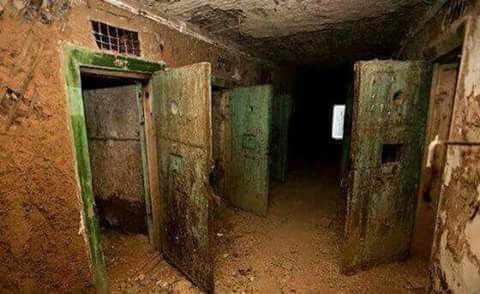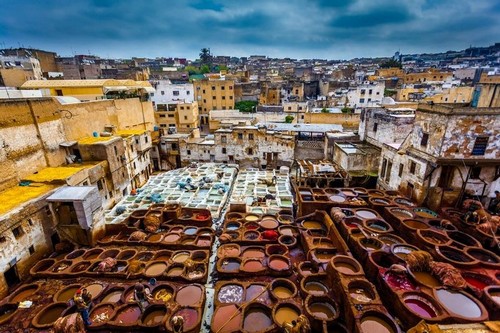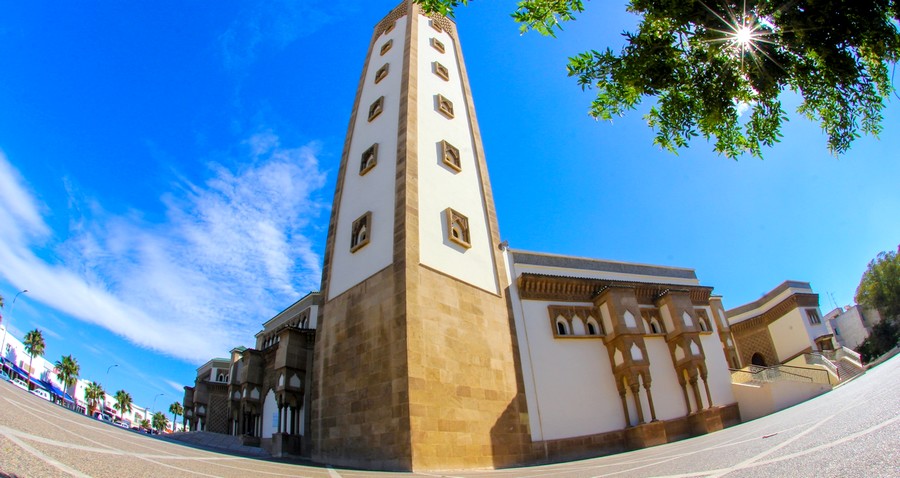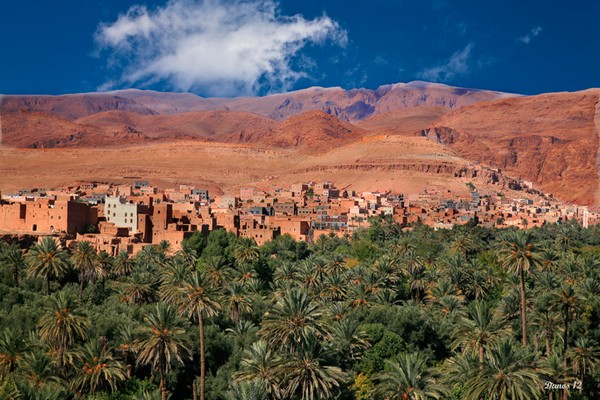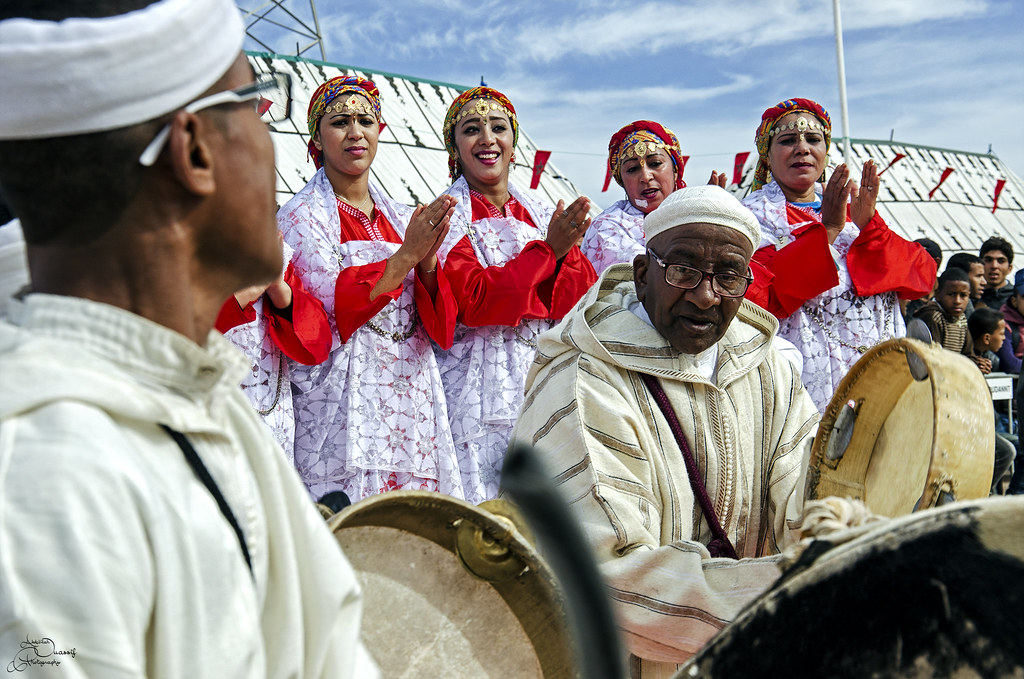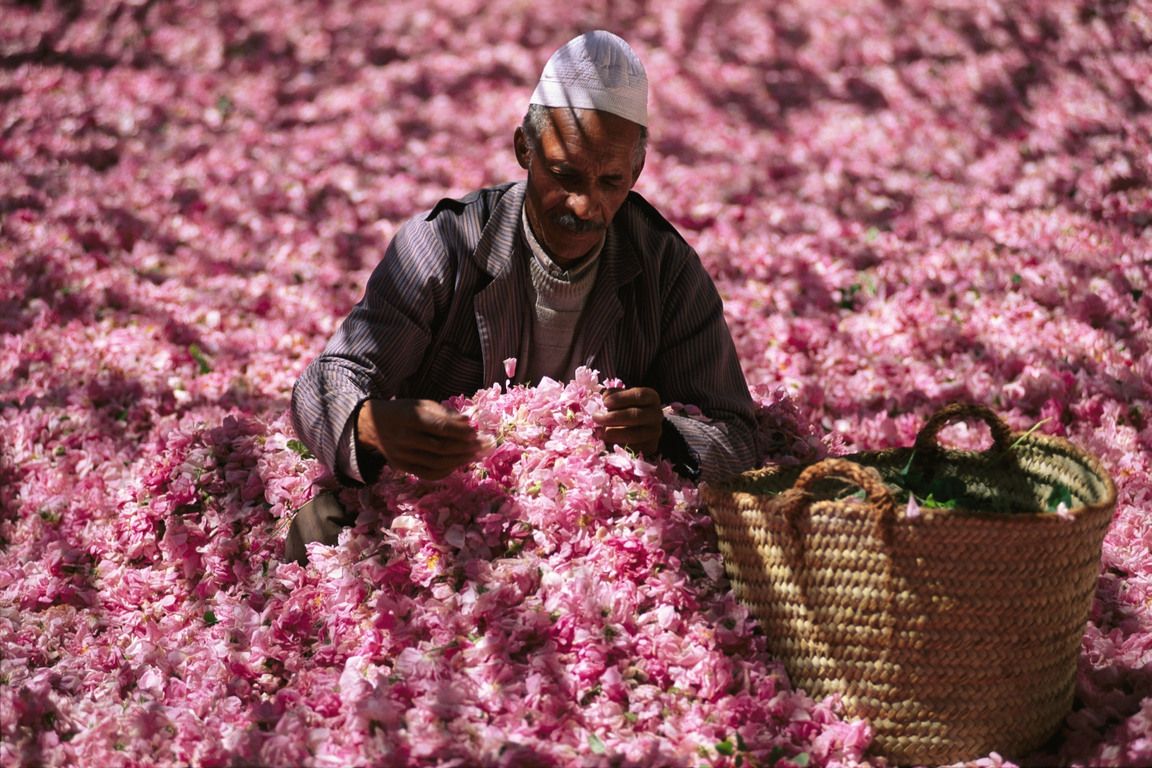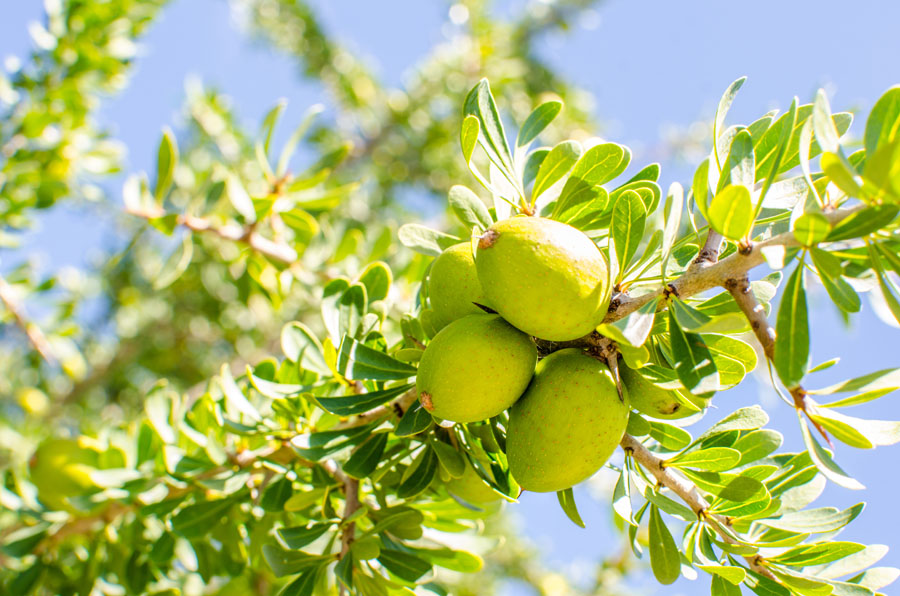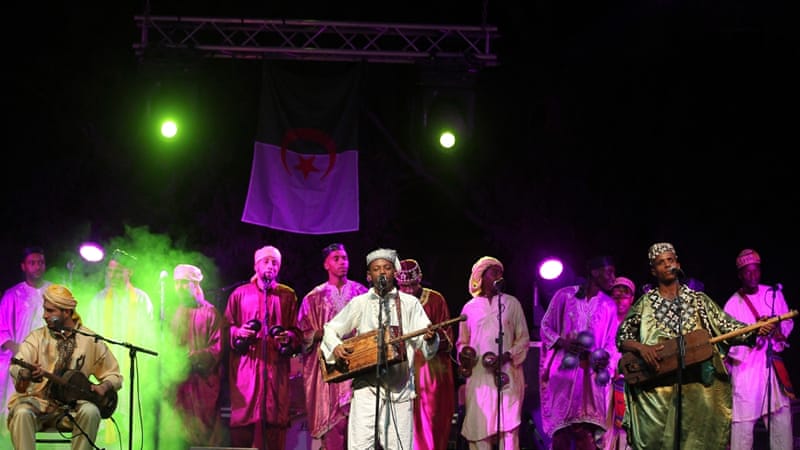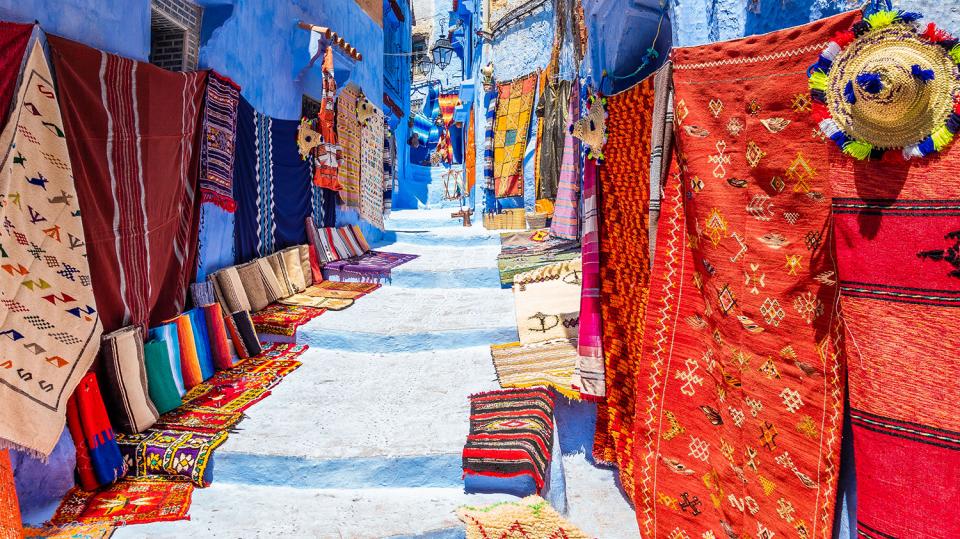At the heart of Fez is the worlds largest living medieval medina , a car-free jumble of souks, palaces, mosques and monuments, and more than 9,000 alleyways to get lost in.
Morocco’s oldest and arguably most fascinating imperial city may have lagged behind Marrakech when it comes to boutique riads and stylish eateries, but there’s a subtle transformation underway. Ancient buildings are being restored, designers are breathing new life into age-old crafts and chefs are turning market produce into gourmet fare.
And with Air Arabia launching new direct flights from both Gatwick and Marrakech, it’s even easier to get there.
Start at the Bab Boujeloud and dip down the Talaa Kebira – one of the medina’s two main arteries – in search of the Medersa Bou Inania, entrance 20 dirham (£1.60), the only building still in religious use that non-Muslims are allowed to enter. Drop in to the spice-scented Souk el Attarine and peer through the doorway of the vast Kairaouine Mosque, before watching the copper-beaters in Place Seffarine and visiting the iconic Chaouwara Tanneries – you’ll smell them before you see them – to witness an age-old process in action.
Fez for foodies
Fassi cuisine is a genuine melting pot – the Arabs, Moors, Ottoman Turks and French all left their culinary mark – and one of the best ways to discover it is on a street-food tour with Plan-it Morocco. At Café Clock’s cooking school you’ll learn how to rustle up three traditional dishes after shopping for ingredients in the souk. Next, at The Ruined Garden’s cooking workshops, you’ll make five typical breads – including baghrir or “thousand-holes” pancake – or meat-free dishes.
Art attack
Get hands on at Craft Draft, where Hamza El Fasiki will introduce you to traditional Fassi crafts, including bookbinding, brass etching and leather embossing; three-hour workshops from 100 dirham (£8). With Culture Vultures’ Artisanal Affairs you’ll meet the craftspeople in their workshops, including weavers, coppersmiths and leathermakers. And Café Clock has a comprehensive cultural programme, where you can try your hand at calligraphy or learn to play the oud.
Get hammam’d
After a hard day’s sightseeing, there’s no better place to relax than Riad Laaroussa’s seductive 17th-century bathhouse. This private hammam is covered with dark Carrara marble and as you steam you’ll be treated to a body scrub and a rhassoul clay facemask, followed by a massage with fragrant orange blossom and jasmine-infused oils.
Where to stay
Perched on a hill on the edge of the Ville Nouvelle, Hotel Sahrai is a boldly designed, contemporary boutique hotel. Neutral-toned rooms and suites are decorated with local stone, wood, metal and glass. An infinity pool and rooftop bar overlook the medina, there’s a luxe Givenchy spa and a French brasserie for top-notch steak frites.
The triple-height patio and five spacious rooms of the beautifully restored Riad Idrissy are resplendent with colourful zellij tiles, ornate stucco and painted cedar wood, and furnished with antiques from all over the country. Start the day with a breakfast feast in the adjoining Ruined Garden restaurant or in the library in cooler months. Doubles from £80, B&B.
The welcoming Dar El Hana is a sensitively renovated 300-year-old house with a traditional central courtyard, just four rooms – each of them different – and a roof terrace, perfect for an alfresco breakfast. Tucked down a quiet street in the heart of the medina, it’s easy to find and makes a great base for exploring. Doubles from £60, B&B.
Where to eat
Chef Najat Kaanache worked at fine-dining restaurants around the globe – including El Bulli – before returning to her Moroccan roots and opening NUR in a stylish riad-turned-restaurant. Her daily, changing, seven-to-nine course tasting menu is inspired by market finds, using sophisticated culinary techniques and creative flavour combinations. Think wild mushroom soup with red caviar, deconstructed vegetable tagine and chicken with a Moroccan-Mexican mole sauce.
The daily-changing dinner menu at the stunning Dar Roumana blends seasonal local produce and Mediterranean flair, served in a romantic, candlelit courtyard. The beetroot and goat’s cheese salad is a good place to start, followed by magret de canard and roasted vegetables, rounded off with a sinfully good dark chocolate tart.
Lunch at the leafy Ruined Garden restaurant means Moroccan tapas, such as zaalouk (smoked aubergine and tomato salad) and maakouda, (deep-fried potato cakes), as well as tagines and hand-rolled couscous on Fridays. Dinner among the greenery comes a la carte and Fassi specialties, such as pigeon b’stilla and Sephardic saffron chicken, can be ordered in advance.
With a maze of rooms spread over two traditional dars and topped with a large terrace, Fez institution Café Clock is perfect for a sightseeing break. The eclectic all-day menu includes the justly famous camel burger and traditional dishes like harira, along with quiche and salads. Wash it all down with a mint tea, fresh fruit smoothie or nus-nus (half milk, half coffee).
Where to drink
The rooftop bar at Dar Roumana has plenty of squishy sofas to chill on while you sip a Fassi G&T – made with lemon verbena-infused gin – or a refreshing Roumana Breeze – vodka, pink grapefruit juice and pomegranate – and watch the sunset. There’s a cosy courtyard bar if it gets chilly. Reservation only (00212 5357 41637).
Hotel Sahrai’s sophisticated indoor-outdoor bar, The Rooftop is finished off with designer seating and chandeliers. It hosts top DJs at weekends but the real star is the view over the old city from the expansive terrace; grab a daybed and drink creative cocktails under the stars.
The art deco-influenced Le Golden Bar at Le Palais Faraj serves up well-crafted cocktails and Moroccan wine and beer alongside stunning medina views from the floor-to-ceiling windows, and a terrace overlooking the medina’s tiled rooftops.
Le Tarbouche is a compact and colourful café on one of the medina’s main streets, with a couple of outdoor tables that are perfect for people-watching over a fresh fruit juice, avocado milkshake, iced coffee or delicious rosemary lemonade.
Where to shop
Shop the souks for butter-soft leather jackets (you can get one made-to-order) bags and slippers, metal lanterns, colourful ceramics, handwoven carpets and more. Bargaining is expected, but only start haggling if you’re serious about buying.
Fez’s first concept store Médin'ART showcases contemporary Moroccan and Morocco-based designers, including bags from Les Maure Collection, T-shirts from Mawj and finely woven scarves from Mouhib, alongside jewellery and homeware.
The carefully curated collection at Le Jardin des Biehn’s boutique has exquisite vintage kaftans alongside contemporary designers, such as handwoven blankets from Artisan Project and handcrafted leather bags from Alfred Berlin.
Architectural highlight
The 14th-century Medersa Bou Inania is a masterpiece of Islamic artistry, with its intricately carved cedar wood, dazzling zellij tiles, ornate stucco and Arabic inscriptions.
